 By the time you read this, I will be back home, but my recent travels took me to Central Utah. You know… Capitol Reef, Escalante Canyons, scenery without compare. I got together with much of my family, something we haven’t done for five years. We come from all over the country, the nieces and nephews attend as they can, and it’s generally fun, meaningful, a little intense, and a little taxing.
By the time you read this, I will be back home, but my recent travels took me to Central Utah. You know… Capitol Reef, Escalante Canyons, scenery without compare. I got together with much of my family, something we haven’t done for five years. We come from all over the country, the nieces and nephews attend as they can, and it’s generally fun, meaningful, a little intense, and a little taxing.
I considered leaving the computer at home, because my work in progress–A Gentleman in Pursuit of Truth–felt stuck. I have the premise (Lord Julian has to find a valuable foxhound who’s gone missing), and I have the plot (I know whodunnit and how Julian will solve the mystery), but that’s not a whole book. That’s a tailor’s dummy upon which many characters, settings, symbols, and subplots must be arranged, and all those parts were not making nice-nice with my foundational notions.
 I get stuck a lot when I write, but I find Cory Doctorow’s prescription comforting. (You don’t need to know the whole route, but you can get there safely even in the dark if you just don’t overdrive your headlights…) I tried my usual coping mechanisms–sleep on it, put it away for a couple days, read from the start of the draft, re-read the last book in the series, do some reading on creativity, eat chocolate, take unplugged walks, go to the barn.
I get stuck a lot when I write, but I find Cory Doctorow’s prescription comforting. (You don’t need to know the whole route, but you can get there safely even in the dark if you just don’t overdrive your headlights…) I tried my usual coping mechanisms–sleep on it, put it away for a couple days, read from the start of the draft, re-read the last book in the series, do some reading on creativity, eat chocolate, take unplugged walks, go to the barn.
No joy. So I was feeling a little guilty for dropping my oar and going on a frolic. I watched a stupid Sherlock Holmes movie with lousy audio on the plane, and getting here meant doing the journey on about two hours sleep. By the time I left SLC in my rented Buick (has a metabolism like mine. Takes a whole lotta momentum to overcome inertia…), I was feeling pretty glum. Tired, frustrated, uncreative, grumpy, truant.
 Fortunately for me, I did the drive down from SLC with my nephew Jackson, who served two years in federal prison for protesting George Floyd’s murder. We talked. Jax sees his incarceration as something like an enforced stay at a particularly weird monastery. He learned a lot, about himself, about socializing in a fish bowl, about poker, about power.
Fortunately for me, I did the drive down from SLC with my nephew Jackson, who served two years in federal prison for protesting George Floyd’s murder. We talked. Jax sees his incarceration as something like an enforced stay at a particularly weird monastery. He learned a lot, about himself, about socializing in a fish bowl, about poker, about power.
I have never come across that perspective on imprisonment. I haven’t seen this spectacular high dessert terrain in years. It’s been almost as long since I had to locate an address that isn’t on Google Maps or Mapquest.
I forgot all about his rubbishing lordship and the missing hound, and this morning, I woke up with three good ideas for moving the book forward. I had to drop my oar to get to shore.
I know this. I know my brain needs to be presented with novelty, with things it can’t handle in predictive text mode, if I want to come up with new thoughts, but I had forgotten that when you need the break the most, when you are the most desperate to 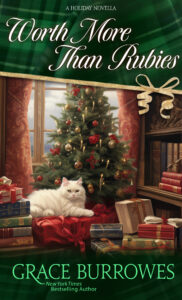 stick with the problem, that’s especially when you need to let go of it–really, really let go, not just worry about it while walking, while “giving it a break,” and while reading the manuscript from the beginning.
stick with the problem, that’s especially when you need to let go of it–really, really let go, not just worry about it while walking, while “giving it a break,” and while reading the manuscript from the beginning.
Geez, Grace.
Is there a place you get stuck despite all effort to the contrary? How do you get unstuck? My holiday novella, Worth More Than Rubies, goes on the sale in the web store later this month, but if you’d like an ARC, please email me at [email protected]. It’s never too early for a holiday happily ever after!







 I grew up in the semi-agricultural zone between a major university town and a historic village on its outskirts. I lived in a neighborhood–not a development–though only one side of our property was bordered by another house. The rest was woods, fields, or park.
I grew up in the semi-agricultural zone between a major university town and a historic village on its outskirts. I lived in a neighborhood–not a development–though only one side of our property was bordered by another house. The rest was woods, fields, or park. Another neighbor paused while walking her dogs to catch me up on some memories her 98-year-old dad has of the house where I live. The girls from half a mile down the road have been stopping by on their bikes to gush over a litter of kittens now calling my porch home. (Yes, those kittens WILL be fixed.)
Another neighbor paused while walking her dogs to catch me up on some memories her 98-year-old dad has of the house where I live. The girls from half a mile down the road have been stopping by on their bikes to gush over a litter of kittens now calling my porch home. (Yes, those kittens WILL be fixed.) humanity’s future, see his book,
humanity’s future, see his book,  Neighbors in Vermont, according to McKibben, neighbor. Public institutions fulfill their mandates reliably. The benefit of the doubt is still given, and kindness is always an available default. People show up for one another. McKibben’s point is that if we let the mess we’re in continue to divide us, we’re doomed, but there’s a way out of the trap that begins with backyard chats, shared appreciation for kittens, and gratuitous bear alerts.
Neighbors in Vermont, according to McKibben, neighbor. Public institutions fulfill their mandates reliably. The benefit of the doubt is still given, and kindness is always an available default. People show up for one another. McKibben’s point is that if we let the mess we’re in continue to divide us, we’re doomed, but there’s a way out of the trap that begins with backyard chats, shared appreciation for kittens, and gratuitous bear alerts. From time to time I come across references to Rev. Gary Chapman’s book,
From time to time I come across references to Rev. Gary Chapman’s book, 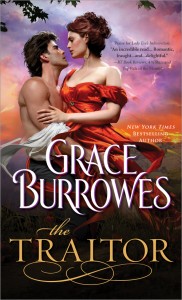 And I like to be of practical use to those I care about. At the therapeutic riding barn, I don’t care if my job is mucking stalls, side-walking in silence, or horse-leading a reluctant pony. I just want to be useful to a good organization. I’m happy with quality time as an expression of caring, but less comfortable with gifts. Affection isn’t casual with me, either.
And I like to be of practical use to those I care about. At the therapeutic riding barn, I don’t care if my job is mucking stalls, side-walking in silence, or horse-leading a reluctant pony. I just want to be useful to a good organization. I’m happy with quality time as an expression of caring, but less comfortable with gifts. Affection isn’t casual with me, either. darned shame. When some guy says all the things but never offers to grab the check, and I’m smitten just because of the smarmy words, that’s another kind of darned shame.
darned shame. When some guy says all the things but never offers to grab the check, and I’m smitten just because of the smarmy words, that’s another kind of darned shame.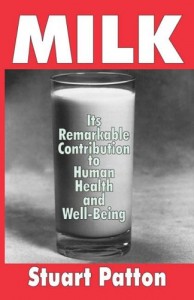 My dad was a great appreciator of what he called the elegant question. As a bench scientist, his work moved forward if he asked the right questions, and then tested his hypotheses in a precise and linear fashion. He was very interested in how correlation could shift to causation–how do you prove that light alters flavor compounds in milk, when it might be time making the difference, the nature of the container, exposure to air…?
My dad was a great appreciator of what he called the elegant question. As a bench scientist, his work moved forward if he asked the right questions, and then tested his hypotheses in a precise and linear fashion. He was very interested in how correlation could shift to causation–how do you prove that light alters flavor compounds in milk, when it might be time making the difference, the nature of the container, exposure to air…? making roadkill of the author’s joie de plume.
making roadkill of the author’s joie de plume. That wonderful lady, who had once upon a time loved truly and with her whole heart, would have counseled divorce. She would have wanted her husband to be safe and happy and away from the relentless despair and drama.
That wonderful lady, who had once upon a time loved truly and with her whole heart, would have counseled divorce. She would have wanted her husband to be safe and happy and away from the relentless despair and drama.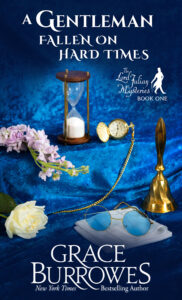 Sleuths in mystery novels (waves to Lord Julian) are always supposed to ask: Who benefits from the commission of this crime? And when they answer that question correctly, they can often ditch some red herrings and false clues.
Sleuths in mystery novels (waves to Lord Julian) are always supposed to ask: Who benefits from the commission of this crime? And when they answer that question correctly, they can often ditch some red herrings and false clues.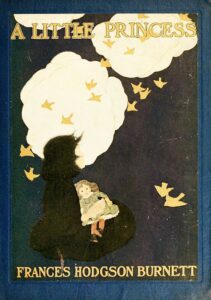 I attend a lot of writing workshops and webinars, and one perennial focus of the big presenters is, “Why should anybody read your book? Why read any book?” The answers to that question generally fall into two categories–we read for education (The Seven Secrets… The Insider’s Guide…. The Successful Person’s…), and we read for entertainment. (The Midnight Library; The Boys From Biloxi; Red, White, and Royal Blue…)
I attend a lot of writing workshops and webinars, and one perennial focus of the big presenters is, “Why should anybody read your book? Why read any book?” The answers to that question generally fall into two categories–we read for education (The Seven Secrets… The Insider’s Guide…. The Successful Person’s…), and we read for entertainment. (The Midnight Library; The Boys From Biloxi; Red, White, and Royal Blue…) We read those stories for entertainment, but entertainment doesn’t stay with you for decades, providing encouragement, inspiration, and fresh perspectives. The great spiritual teachers didn’t turn to parables, fables, jatakas, and myths because they hoped for a lot of positive reviews on Amazon. They wanted to impart concepts and viewpoints that couldn’t be accurately conveyed or given adequate impact without the mysterious power of story.
We read those stories for entertainment, but entertainment doesn’t stay with you for decades, providing encouragement, inspiration, and fresh perspectives. The great spiritual teachers didn’t turn to parables, fables, jatakas, and myths because they hoped for a lot of positive reviews on Amazon. They wanted to impart concepts and viewpoints that couldn’t be accurately conveyed or given adequate impact without the mysterious power of story.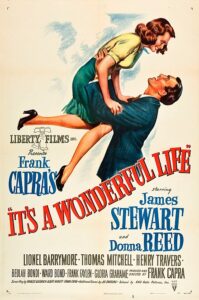 We are more than students in need of education, or economic drones who must be humored with escapist entertainment. To me, good stories affirm the wondrous potential of our nature, give it voice and inspiration, and resonate with that magnificence inside each one of us.
We are more than students in need of education, or economic drones who must be humored with escapist entertainment. To me, good stories affirm the wondrous potential of our nature, give it voice and inspiration, and resonate with that magnificence inside each one of us. I’ve been trying to drop some weight lately, and it’s not going well. It never goes well. I am not a glutton and I have plenty of self-discipline, but as my dad once said, I also have a metabolism suited to weathering an ice age. “Just wait 12,000 years, Grace. Everybody’s going wish they had your metabolism.”
I’ve been trying to drop some weight lately, and it’s not going well. It never goes well. I am not a glutton and I have plenty of self-discipline, but as my dad once said, I also have a metabolism suited to weathering an ice age. “Just wait 12,000 years, Grace. Everybody’s going wish they had your metabolism.”
 Then I go to the therapeutic riding barn, where one of the lessons I assist with is for a young man who has cerebral palsy and scoliosis, both of which are likely to progress. I don’t know how he has the courage to get on a horse, much less how he stays in the saddle. But he does–every week.
Then I go to the therapeutic riding barn, where one of the lessons I assist with is for a young man who has cerebral palsy and scoliosis, both of which are likely to progress. I don’t know how he has the courage to get on a horse, much less how he stays in the saddle. But he does–every week. My mood lately is irritable.
My mood lately is irritable. The adult me knows I’m very, very lucky, and my life is awash in blessings. The less philosophical part of me is looking (grumpily) for reasons to smile, and here is a little bit of what I’ve found this week:
The adult me knows I’m very, very lucky, and my life is awash in blessings. The less philosophical part of me is looking (grumpily) for reasons to smile, and here is a little bit of what I’ve found this week: I like that my most recent COVID booster–and all my COVID boosters–have been free. Yes, I know, our tax dollars paid for them, but a) the drug was available, and b) all I had to do was ask the nice pharmacist if I could be vaccinated, and within 24 hours, I had another little shot of safety. I’ve scheduled air travel in upcoming months, and this was a box I needed check.
I like that my most recent COVID booster–and all my COVID boosters–have been free. Yes, I know, our tax dollars paid for them, but a) the drug was available, and b) all I had to do was ask the nice pharmacist if I could be vaccinated, and within 24 hours, I had another little shot of safety. I’ve scheduled air travel in upcoming months, and this was a box I needed check. Every slight to a person’s good name has to be personally addressed, and personal integrity is highly valued. Personal status and personal accomplishments affect influence and standing–none of this created equal baloney. Whereas a dignity culture might become excessively litigious, an honor culture can descend into bloody feuds and vigilantism.
Every slight to a person’s good name has to be personally addressed, and personal integrity is highly valued. Personal status and personal accomplishments affect influence and standing–none of this created equal baloney. Whereas a dignity culture might become excessively litigious, an honor culture can descend into bloody feuds and vigilantism. That being the case, Julian is surrounded by people who still value symbols of honor. Signet rings, family titles, dueling scars, regalia of office, and military forms of address carried into civilian life all made sense to Julian before he became a prisoner of war, then an injured veteran. By the time we meet him, he’s a man in transition.
That being the case, Julian is surrounded by people who still value symbols of honor. Signet rings, family titles, dueling scars, regalia of office, and military forms of address carried into civilian life all made sense to Julian before he became a prisoner of war, then an injured veteran. By the time we meet him, he’s a man in transition. Julian still has a badge or two of honor, though. Because his eyes were damaged by a battlefield explosion, he needs tinted spectacles to deal with strong sunlight. He wears them with pride, always has a spare pair on hand, and soon becomes closely identified with them in larger society. They announce to the world (that feels entitled to judge him unfairly) that he’s suffered for his country. His specs also afford him some privacy, to the extent that the eyes are windows to the soul.
Julian still has a badge or two of honor, though. Because his eyes were damaged by a battlefield explosion, he needs tinted spectacles to deal with strong sunlight. He wears them with pride, always has a spare pair on hand, and soon becomes closely identified with them in larger society. They announce to the world (that feels entitled to judge him unfairly) that he’s suffered for his country. His specs also afford him some privacy, to the extent that the eyes are windows to the soul. If you try to look back past more than about a month of my blog posts, you will find I have de-published ten years worth of weekly material. I did this, because Google has
If you try to look back past more than about a month of my blog posts, you will find I have de-published ten years worth of weekly material. I did this, because Google has  The situation with AI encroaching on creative livelihoods generally has me down. The wretched heat has me down, as does the thought that we might look back on this summer as “before it really got hot.” Summer is never a great time for book sales, and the stinkin’ Japanese beetles got after my little cherry trees before I even knew Japanese beetles liked cherry trees.
The situation with AI encroaching on creative livelihoods generally has me down. The wretched heat has me down, as does the thought that we might look back on this summer as “before it really got hot.” Summer is never a great time for book sales, and the stinkin’ Japanese beetles got after my little cherry trees before I even knew Japanese beetles liked cherry trees. I was really not in the mood to get on the dreaded tread desk yesterday evening, so I… went to the pool.
I was really not in the mood to get on the dreaded tread desk yesterday evening, so I… went to the pool.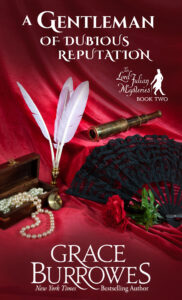 I took about a half dozen turns off the one-meter board, though I didn’t have the nerve to do that one-two-three-bounce prep that presages a really good upward arc. For no reason I can explain, by the second dive, I was giggling at myself. I am no sylph, and when I leave that board, it doth bounce, but ye gods, I had fun. This is a joy I can still claim, a little micro-accomplishment (from when I was five) that still resonates.
I took about a half dozen turns off the one-meter board, though I didn’t have the nerve to do that one-two-three-bounce prep that presages a really good upward arc. For no reason I can explain, by the second dive, I was giggling at myself. I am no sylph, and when I leave that board, it doth bounce, but ye gods, I had fun. This is a joy I can still claim, a little micro-accomplishment (from when I was five) that still resonates. I’m writing a story now to wrap up the Mischief in Mayfair series (look for a new title on the Coming Soon page in a few weeks), and that turns my thoughts to What’s Next? More happily ever afters, of course! But readers like series, and I like series, and so that brings me to…. Mayfair Blossoms.
I’m writing a story now to wrap up the Mischief in Mayfair series (look for a new title on the Coming Soon page in a few weeks), and that turns my thoughts to What’s Next? More happily ever afters, of course! But readers like series, and I like series, and so that brings me to…. Mayfair Blossoms.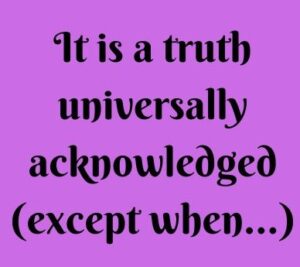 The ladies will also have super-fears or flaws too of course. A fear of heights, dogs, public speaking, and so forth. Though let it be said, I plot and my characters laugh. The gents will have their own issues.
The ladies will also have super-fears or flaws too of course. A fear of heights, dogs, public speaking, and so forth. Though let it be said, I plot and my characters laugh. The gents will have their own issues.